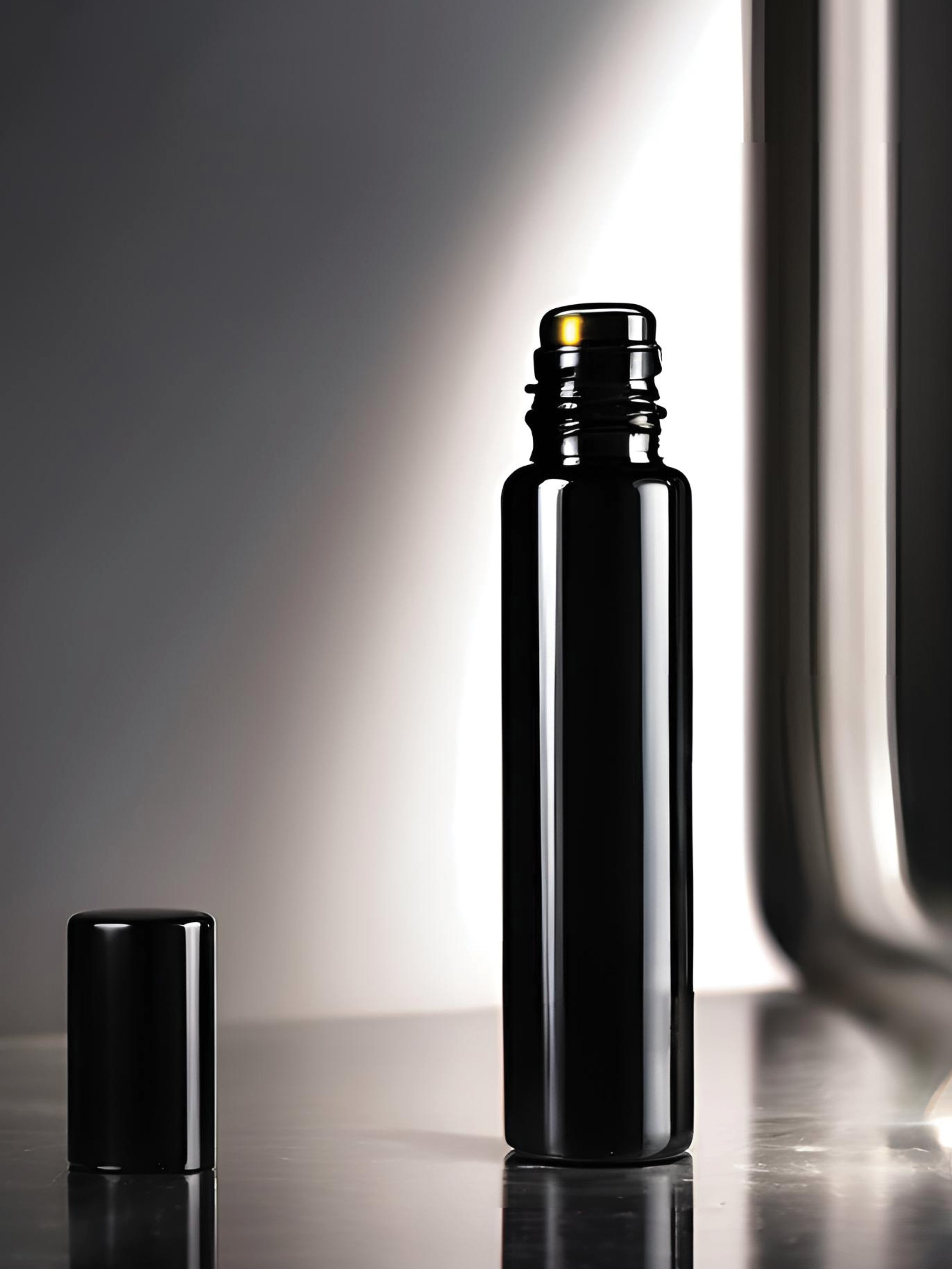 Image 1 of 2
Image 1 of 2

 Image 2 of 2
Image 2 of 2



NEROLI ESSENTIAL OIL
Citrus aurantium, also known as bitter orange or Seville orange, is a citrus tree native to Southeast Asia. The essential oil extracted from the flowers of Citrus aurantium, commonly referred to as citrus aurantium flower oil or neroli oil, is highly prized in aromatherapy for its therapeutic properties and beautiful fragrance. Here are some benefits and aromatherapy uses of citrus aurantium flower oil:
Relaxation and Stress Relief: Citrus aurantium flower oil has calming properties that can help reduce anxiety, promote relaxation, and alleviate stress. Its soothing aroma can help create a sense of tranquility and well-being.
Mood Enhancement: The oil is known for its uplifting and mood-enhancing effects. It can help alleviate feelings of sadness, uplift the spirits, and promote a positive outlook.
Sleep Aid: Citrus aurantium flower oil is often used to improve sleep quality. Its sedative properties can help calm the mind and promote a restful night's sleep. It is commonly used in diffusers or added to a warm bath before bedtime.
Skincare: The oil is beneficial for the skin and is often used in skincare products. It has antiseptic and antibacterial properties, making it useful for acne-prone skin. It can also help rejuvenate and balance the skin, reducing the appearance of scars and promoting a healthy complexion.
Digestive Support: Citrus aurantium flower oil has been used traditionally to support digestive health. It can help relieve indigestion, bloating, and nausea. Aromatherapy massage with diluted neroli oil can be particularly soothing for digestive discomfort.
Aphrodisiac Effects: Citrus aurantium flower oil is renowned for its sensual and aphrodisiac properties. It can help enhance romantic feelings, boost libido, and create an intimate atmosphere.
Emotional Balance: This essential oil is often used to balance emotions and promote emotional well-being. It can help calm nervous tension, reduce irritability, and bring about a sense of harmony.
When using citrus aurantium flower oil for aromatherapy, it is important to dilute it with a carrier oil, such as jojoba or almond oil, before applying it to the skin. Alternatively, it can be used in a diffuser or added to bathwater for inhalation. As with any essential oil, it is recommended to perform a patch test and consult a qualified aromatherapist or healthcare professional before using it, especially if you have any specific health conditions or are pregnant or nursing.
Citrus aurantium, also known as bitter orange or Seville orange, is a citrus tree native to Southeast Asia. The essential oil extracted from the flowers of Citrus aurantium, commonly referred to as citrus aurantium flower oil or neroli oil, is highly prized in aromatherapy for its therapeutic properties and beautiful fragrance. Here are some benefits and aromatherapy uses of citrus aurantium flower oil:
Relaxation and Stress Relief: Citrus aurantium flower oil has calming properties that can help reduce anxiety, promote relaxation, and alleviate stress. Its soothing aroma can help create a sense of tranquility and well-being.
Mood Enhancement: The oil is known for its uplifting and mood-enhancing effects. It can help alleviate feelings of sadness, uplift the spirits, and promote a positive outlook.
Sleep Aid: Citrus aurantium flower oil is often used to improve sleep quality. Its sedative properties can help calm the mind and promote a restful night's sleep. It is commonly used in diffusers or added to a warm bath before bedtime.
Skincare: The oil is beneficial for the skin and is often used in skincare products. It has antiseptic and antibacterial properties, making it useful for acne-prone skin. It can also help rejuvenate and balance the skin, reducing the appearance of scars and promoting a healthy complexion.
Digestive Support: Citrus aurantium flower oil has been used traditionally to support digestive health. It can help relieve indigestion, bloating, and nausea. Aromatherapy massage with diluted neroli oil can be particularly soothing for digestive discomfort.
Aphrodisiac Effects: Citrus aurantium flower oil is renowned for its sensual and aphrodisiac properties. It can help enhance romantic feelings, boost libido, and create an intimate atmosphere.
Emotional Balance: This essential oil is often used to balance emotions and promote emotional well-being. It can help calm nervous tension, reduce irritability, and bring about a sense of harmony.
When using citrus aurantium flower oil for aromatherapy, it is important to dilute it with a carrier oil, such as jojoba or almond oil, before applying it to the skin. Alternatively, it can be used in a diffuser or added to bathwater for inhalation. As with any essential oil, it is recommended to perform a patch test and consult a qualified aromatherapist or healthcare professional before using it, especially if you have any specific health conditions or are pregnant or nursing.
Citrus aurantium, also known as bitter orange or Seville orange, is a citrus tree native to Southeast Asia. The essential oil extracted from the flowers of Citrus aurantium, commonly referred to as citrus aurantium flower oil or neroli oil, is highly prized in aromatherapy for its therapeutic properties and beautiful fragrance. Here are some benefits and aromatherapy uses of citrus aurantium flower oil:
Relaxation and Stress Relief: Citrus aurantium flower oil has calming properties that can help reduce anxiety, promote relaxation, and alleviate stress. Its soothing aroma can help create a sense of tranquility and well-being.
Mood Enhancement: The oil is known for its uplifting and mood-enhancing effects. It can help alleviate feelings of sadness, uplift the spirits, and promote a positive outlook.
Sleep Aid: Citrus aurantium flower oil is often used to improve sleep quality. Its sedative properties can help calm the mind and promote a restful night's sleep. It is commonly used in diffusers or added to a warm bath before bedtime.
Skincare: The oil is beneficial for the skin and is often used in skincare products. It has antiseptic and antibacterial properties, making it useful for acne-prone skin. It can also help rejuvenate and balance the skin, reducing the appearance of scars and promoting a healthy complexion.
Digestive Support: Citrus aurantium flower oil has been used traditionally to support digestive health. It can help relieve indigestion, bloating, and nausea. Aromatherapy massage with diluted neroli oil can be particularly soothing for digestive discomfort.
Aphrodisiac Effects: Citrus aurantium flower oil is renowned for its sensual and aphrodisiac properties. It can help enhance romantic feelings, boost libido, and create an intimate atmosphere.
Emotional Balance: This essential oil is often used to balance emotions and promote emotional well-being. It can help calm nervous tension, reduce irritability, and bring about a sense of harmony.
When using citrus aurantium flower oil for aromatherapy, it is important to dilute it with a carrier oil, such as jojoba or almond oil, before applying it to the skin. Alternatively, it can be used in a diffuser or added to bathwater for inhalation. As with any essential oil, it is recommended to perform a patch test and consult a qualified aromatherapist or healthcare professional before using it, especially if you have any specific health conditions or are pregnant or nursing.
-
INCI NAME: Citrus Aurantium Amara Flower Oil.
ORIGIN: Morocco. Bottled in Hawai’i.
PART USED: Flowers.
EXTRACTION METHOD: Steam Distilled Essential Oil.
NOTE CLASSIFICATION: Top Note.
-
Citrus aurantium flower oil, or neroli oil, blends well with a variety of other essential oils. Some popular essential oils that blend harmoniously with neroli oil include:
Lavender: Lavender oil has a soothing and calming aroma that complements the floral scent of neroli. This blend promotes relaxation and emotional balance.
Geranium: Geranium oil has a sweet, rosy scent that pairs well with neroli. Together, they create a harmonious floral blend that can uplift the mood and promote a sense of well-being.
Ylang Ylang: Ylang ylang oil has a rich, exotic fragrance that blends beautifully with neroli. This combination creates a luxurious and sensual aroma, making it suitable for creating romantic and intimate atmospheres.
Bergamot: Bergamot oil has a citrusy and uplifting scent that complements the floral notes of neroli. This blend can promote a positive mood and help reduce stress and anxiety.
Jasmine: Jasmine oil has a sweet, floral aroma that blends seamlessly with neroli. This combination creates a rich and intoxicating floral scent, often used in perfumes or for promoting a sensual and romantic ambiance.
Sandalwood: Sandalwood oil has a warm and woody fragrance that pairs well with neroli's floral notes. This blend can have grounding and calming effects, making it suitable for relaxation and meditation.
Rose: Rose oil has a beautiful and classic floral scent that complements the sweet and citrusy aroma of neroli. Together, they create a delightful floral blend that can promote emotional balance and self-care.
When blending essential oils, it is important to consider the desired aroma, therapeutic properties, and personal preferences. You can experiment with different ratios and combinations to find the blend that suits your needs best.
-
They can be inhaled directly from the bottle, diffuser, or humidifier.
They should be diluted with a carrier oil when applied to your skin. We suggest a 4% dilution rate.
You can also add them to your favorite skincare products.
Essential oils are not safe for consumption unless you are under a health practitioner's guidance.
-
100% Pure Essential Oil.
Unrefined, Undiluted, No Fillers, No Synthetics, Organic, and Sustainably sourced.
-
0.33 oz / 10 ml
Amber glass bottle with euro dropper.
-
Keep out of reach of children. The bottles are a choking hazard. Avoid contact with eyes, inner ears, mucous membranes, and sensitive areas. If you are pregnant, nursing, taking medication, or have a medical condition, consult a health professional prior to use.
Animals are more sensitive to certain scents; consider your pets while choosing essential oils.
While not all essential oils have the same effect on everyone, the key is finding which ones work best for you. You are the individual and know what is best for you. So experiment and find your path.
The products described on this website are not intended to diagnose, treat or prevent any disease or to affect any structure or function of the skin or body. The information on this website is not medical advice and is not a substitute for consulting with a healthcare provider.


